Thông Tin Cộng Đồng ECHO
What is causing this damage? 2026-01-06
Noticing damage to the leaves or fruit of your crops can be alarming. For certain plant diseases, early detection is essential for effective management that limits further injury to the crop. In other cases, the level of damage—or the type of pest responsible—may be too minor to justify control measures, as the cost of intervention could exceed the impact of the damage. Identifying the exact cause of leaf injury can be challenging, because insects, pathogens, nutrient deficiencies, and environmental factors can produce similar symptoms. To assist with this process, ECHO has developed a set of example photographs that illustrate common leaf symptoms and provide guidance on how to determine the likely cause of the damage. Take a look!
ECHO quick photo guide of insect pest damage vs. other crop damage
TOT with Global CHE Network 2025-12-23
Join us in February for a Trainer of Trainers course with Global CHE Network at ECHO North America!
This training offers instruction on proven community development, including principals/practices and practical techniques, systems and technologies to meet wholistic community development, agricultural, and nutritional needs of impoverished communities.
Training Dates: February 23-27, 2026
For more information about this course and to register use the link below.
Now Available! EDN 172 2025-12-16
In this issue
- Aquatic Plant Production: Azolla and Duckweed for Livestock Feed
- Salt-impregnated Biochar as a Desiccant
- Echoes from Our Network: Sunflower, Sustainable Economic Recommendations for East Africa
- From ECHO's Seed Bank: Malabar Spinach, A Tropical Green Leafy Vegetable
- Books, Websites, and Other Resources: ANAFAE resources
Aquatic Plant Production
Azolla and Duckweed for Livestock Feed
Shaun Snoxell and Nitin Rex Sancho
Excerpt:
At ECHO Asia, we feed both duckweed and azolla to chickens. We scoop plants out of the water using a plastic basket, and feed fresh plants directly to the chickens. We do not dry the plants before feeding. Chickens tend to find the azolla more palatable than the duckweed. However, in our context, duckweed tends to grow faster than azolla. Harvest and feeding takes just a few minutes. ECHO Asia measured the increase in weight of duckweed and azolla per week under conventional management in November 2025. For each gram of duckweed added to a container, 4.5 grams were harvested after 7 days (doubling time in 3.23 days). For every gram of azolla added, 3 grams were harvested after 7 days (doubling time in 4.42 days). However, once the surface of the water is covered, or fertilization is delayed, the growth rate declined rapidly.
Creation of bioliquid fertilizer in Central Africa 2025-12-09
I am Kasereka Kaghesi Richard, originally from the East of the DRC, Nord-Kivu Province, in the city of Butembo, coordinator of the organization POID-RDC (People Organizing Initiatives for Development). We express our sincere gratitude to ECHO, the trainer Hassan Djebro, the facilitator Mwalimu, and all the other trainers who continue to support us and strengthen our capacities through the webinar series ECHO is conducting for Central Africa.
Despite the material challenges, we are moving forward with determination. The training received has allowed us to transform simple local resources into a useful product for our communities. This proves that, even without significant resources, innovation and willpower can produce tangible results. We firmly believe that this work is a seed for a better future. With the experimentation of our biofertilizer, we are taking a new step towards agricultural empowerment and the sustainable development of our communities.
Thanks to the training received from ECHO, we followed the following steps:
- We took a 20-liter bucket.
- We started by adding manure, fresh herbs, two shovelfuls of soil, then ash, and water.
- We also added some animal bones and feathers.
- The mixture was kept in a shaded area.
- Every morning and every evening, we used a tree stick as a stirrer to mix the preparation.
This is the simple and effective procedure we applied to obtain our biofertilizer.
We will now move on to the utilization phase to experiment with our product directly in the field and observe its positive effects on our crops.
Share your experience with these innovations! 2025-12-02
ECHO is gathering feedback on four of the many agricultural innovations shared within our global network:
- Perennial nutrition – using perennial crops such as chaya and moringa to enhance human nutrition;
- Bicycle pump vacuum sealing for seed storage;
- Banana stalk silage for livestock feed; and
- Biochar for soil improvement and carbon sequestration.
If you have interacted with these innovations, we invite you to take the following survey and share how these innovations have been used, adapted, and shared in your context. The survey should take approximately 5 minutes per topic to complete. Your responses will be used to inform future training, research, and support within the ECHO network. Your response may also contribute to research aimed at understanding how agricultural innovations spread and are applied in diverse settings. Your participation in this survey is entirely voluntary.
The survey is available in English, Spanish, French, and Swahili. Thank you for sharing your experience and contributing to this collaborative learning effort.
January Trainings ECHO North America 2025-11-25
Join us in January for two training opportunities at ECHO North America!
January 20-24 Farming God's Way: an amazing solution to the food security and poverty crisis facing agricultural communities, using well-integrated biblical, management and technical keys to help break the yokes of physical and spiritual poverty among the poor.
January 26-30 for Introduction to Tropical Agriculture Development: This course covers a broad range of topics relevant to those starting in agricultural development in a tropical environment.
You can register for both trainings and save $$!
Click the links above to learn more about each training and to register. Early bird tickets end December 1st, Register TODAY!
National Seed Bank Managers Forum - Dodoma, Tanzania 2025-11-04
November 21 - 22, 2025 | Royal Village Hotel, Dodoma
This 2-day event aims to bring together community seed bank managers in Tanzania (farmers operating in community seed banks), partner organizations, and other relevant stakeholders to exchange experiences, consolidate initiatives related to community seed banks, and co-create tools and resources for improved seed bank management.
Email ECHO East Africa Seed Bank Manager, Faith Juma, with questions: easeeds@echocommunity.org
Integrated Pest Management 2025-10-28
Pest control is a crucial part of farmer management of agroecosystems. The current global situation calls for a multi-pronged approach to pest management. To be widely applicable, this approach must provide farmers with options to control pests at various scales of production (from small farms to very large operations) with a diversity of resources. Integrated pest management, a strategy based on farmer innovations, is highly adaptable to specific contexts and reduces dependency on pesticides while still recognizing their use.
If you have other approaches to pest management that have worked for you in your context, please share them with the global ECHO Network on ECHO Conversations!
Example of IPM from the Island of Bali
View a quick photo guide of insect pest damage vs. other crop damage
Read IPM Technical Note Online
The importance of food preservation 2025-10-21
ECHO actively promotes, researches, and shares pathways and options for food preservation. Food preservation is a vital way to reduce postharvest losses, maximize profitability, retain or improve nutrient density of food commodities, and economically diversify within local food systems. ECHO West Africa has, for example, promoted and trained about creating tomato paste in areas where prices plummet as supply increases and farmers get less return on investment without this form of value-addition and preservation. ECHO East Africa has co-created drier designs for drying fruits and vegetables even in humid contexts.
Learn more about direct solar driers
EIAC 2025 Registration Closing 2025-10-14
Have you registered for the ECHO International Agriculture Conference yet? The deadline to sign up is October 24th!
You won't want to miss out on this gathering that brings together practitioners, researchers, and educators dedicated to eradicating hunger and improving lives through sustainable agriculture and community development. Through engaging plenary speakers, breakout sessions, and hands-on workshops, you'll explore practical strategies and pathways to flourishing for communities facing food insecurity around the world.
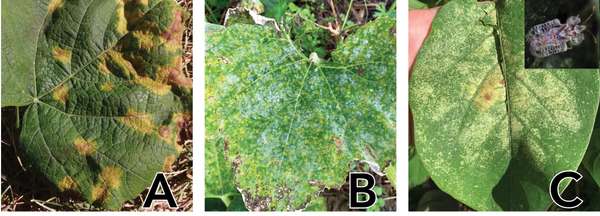

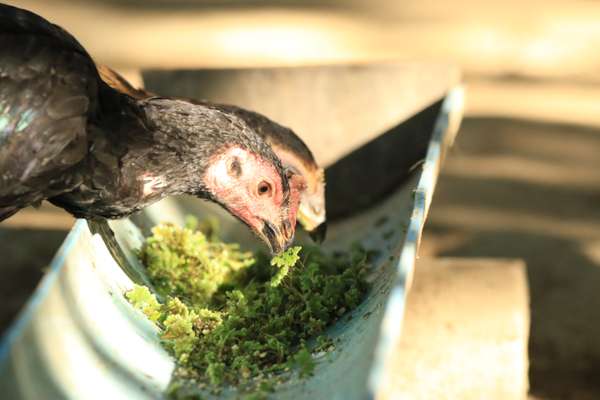
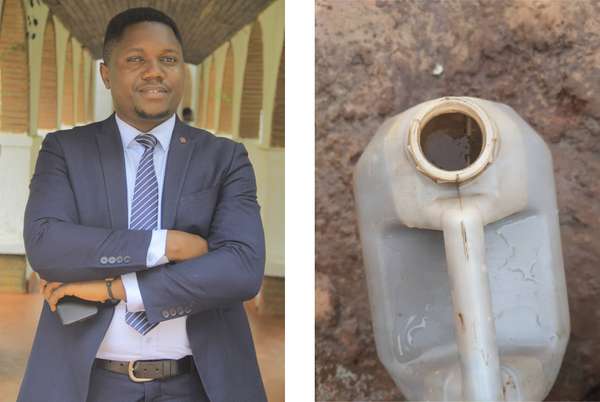
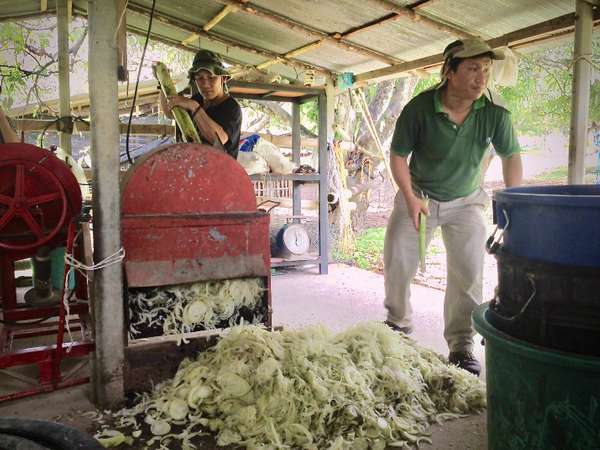
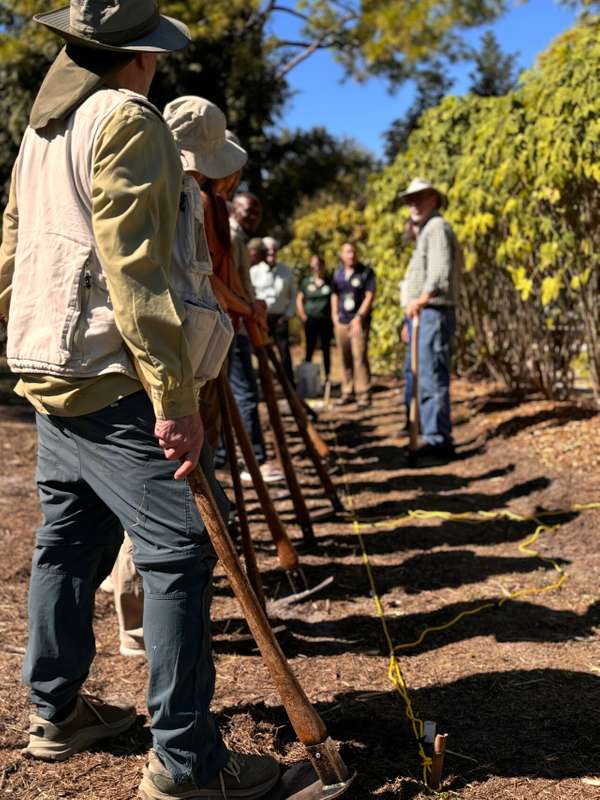
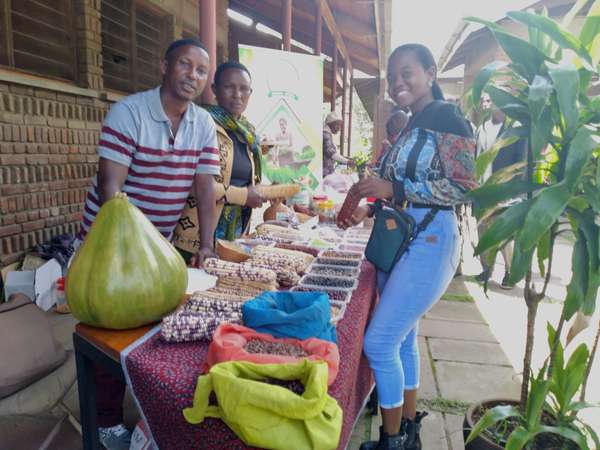
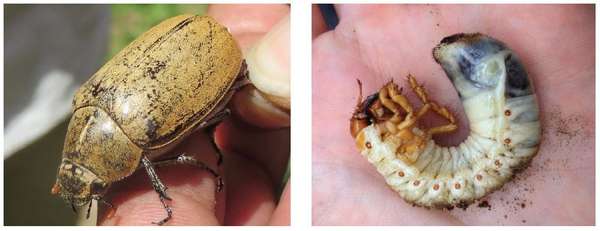
.jpg?w=600)
.png?w=600)